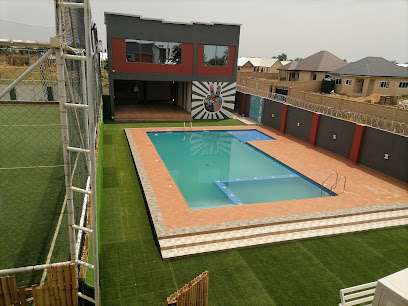
Echoes of History at the Salaga Slave Market
Explore the poignant history at Salaga Slave Market, a museum dedicated to the legacy of the transatlantic slave trade in Ghana.
Discover the poignant history at Salaga Slave Market, a museum that tells the story of the slave trade in Ghana. A visit here offers deep insights into the past and its lasting impact on the culture of the region.
A brief summary to Salaga Slave Market
- Salaga - Atebubu Rd, Salaga, GH
- +233504943359
- Monday 8 am-6 pm
- Tuesday 8 am-6 pm
- Wednesday 8 am-6 pm
- Thursday 8 am-6 pm
- Friday 8 am-6 pm
- Saturday 8 am-6 pm
- Sunday 8 am-6 pm
Local tips
- Plan your visit during the week for a quieter experience; weekends can be busier with local visitors.
- Engage with local guides for richer insights into the exhibits and the historical significance of the site.
- Take your time to read the information plaques; they offer valuable context to the artifacts on display.
- Bring a camera, but be respectful of the sensitive nature of the site's history when taking photos.
- Consider visiting nearby attractions to make the most of your journey in the Salaga area.
Getting There
-
Car
If you are traveling by car, start from the center of Damongo, the capital of Gonjaland. Head northeast on the N17 road for approximately 30 kilometers until you reach the junction for the Salaga - Atebubu Road. Turn left onto the Salaga - Atebubu Road and continue for about 15 kilometers. The Salaga Slave Market will be on your left side as you enter Salaga town. Look for signs along the route to assist with navigation.
-
Public Transportation (Shared Taxi)
From Damongo, you can take a shared taxi to Salaga. Go to the main taxi station in Damongo and look for taxis heading to Salaga. The fare is typically around 15 GHS per person, depending on the number of passengers. The journey takes about 45 minutes. Once you arrive in Salaga, ask the driver to drop you off near the Salaga Slave Market, which is a known landmark.
-
Public Transportation (Tro-Tro)
Alternatively, you can take a tro-tro (minibus) from Damongo to Salaga. Head to the tro-tro station in Damongo and look for a tro-tro going to Salaga. The fare is usually around 10 GHS, and it may take about an hour to reach Salaga. Once you arrive, walk towards the Salaga Slave Market, which is located on the Salaga - Atebubu Road. It’s advisable to ask locals for directions if you are unsure.
-
Walking (from Salaga town)
If you are already within Salaga town, the Salaga Slave Market is accessible on foot. From the town center, head west towards the Salaga - Atebubu Road. Walk along this road for about 1 kilometer, and you will see the market on your left. It’s a straightforward walk, but keep an eye on your surroundings and ask locals for assistance if needed.
Discover more about Salaga Slave Market
Iconic landmarks you can’t miss
Yeji Market
37.9 km
Experience the vibrant culture and local flavors at Yeji Market, a must-visit destination in Ghana for fresh produce and artisanal goods.
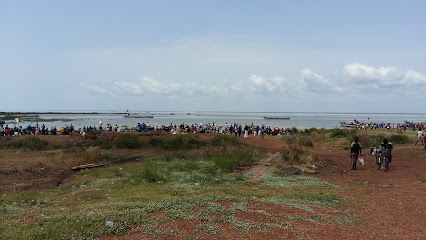
Ebenezer Hotel
38.2 km
Experience warm hospitality and explore the beauty of Yeji at Ebenezer Hotel, your cozy getaway in Ghana's lakeside paradise.

Banda
54.6 km
Explore Banda's lively market in Ghana's Oti Region, where vibrant culture, local crafts, and delicious cuisine await every traveler.
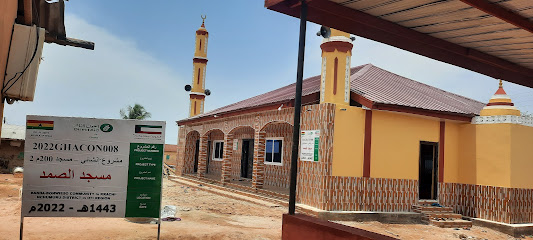
Bowling Alley
86.9 km
Experience fun and excitement at Trohwe Bowling Alley, the perfect destination for bowling enthusiasts and casual players alike.
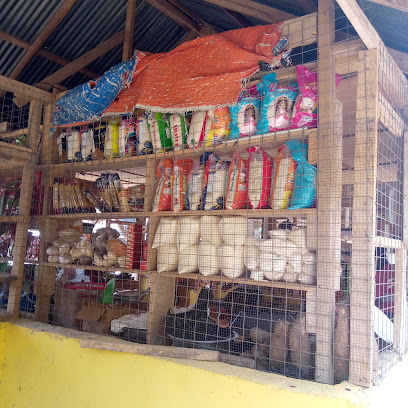
Cotonou, Benin
89.3 km
Explore the vibrant culture, stunning coastlines, and rich history of Cotonou, Benin's bustling economic capital, perfect for every traveler.
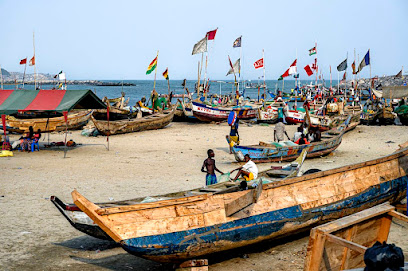
Afro Nyanka Tours
91.1 km
Experience the richness of Ghana's culture and nature with Afro Nyanka Tours, your premier tour operator for unforgettable adventures.
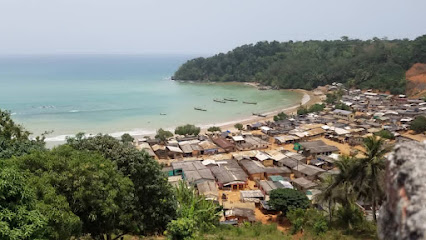
Baba Yara Sports Stadium
91.1 km
Discover the vibrant sports culture of Kumasi at Baba Yara Sports Stadium, where thrilling matches and local passion come to life.
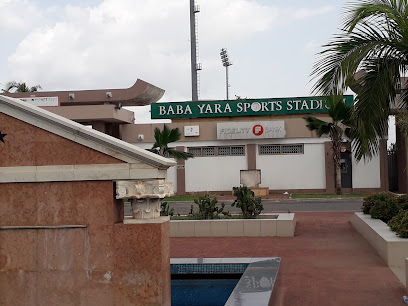
ThewesttribeheritageGHANA
91.1 km
Experience the vibrant culture and rich heritage of Ghana at ThewesttribeheritageGHANA, where tradition and artistry come alive.

Dambai Lake Side 2
92.3 km
Experience the tranquil beauty of Dambai Lake with a ferry ride that connects you to nature and local culture in Ghana's serene landscapes.
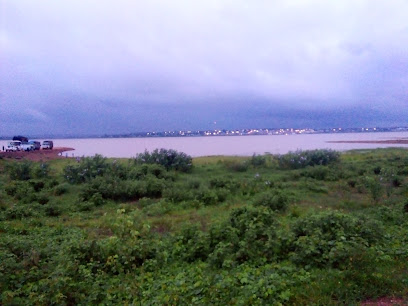
Dambai Ferry Site
93.0 km
Explore the scenic beauty and local culture at Dambai Ferry Site, the perfect gateway for your Ghanaian adventure.
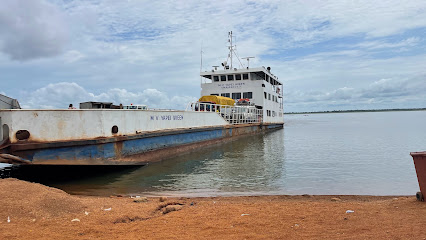
Krachi East District Assembly Guest House
95.6 km
Experience the charm of Dambai at Krachi East District Assembly Guest House, your serene retreat for exploring Ghana's natural beauty and rich culture.

White Volta
96.3 km
Explore White Volta, a serene historical landmark in Yipala, Ghana, where nature meets culture along the banks of the beautiful river.
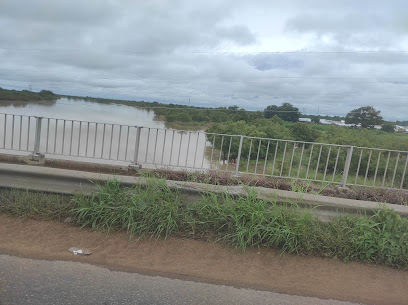
BANTAMA- BONO EAST REGION, GHANA
96.5 km
Discover the rich culture and stunning landscapes of Bantama in the Bono East Region of Ghana, a hidden gem waiting to be explored.
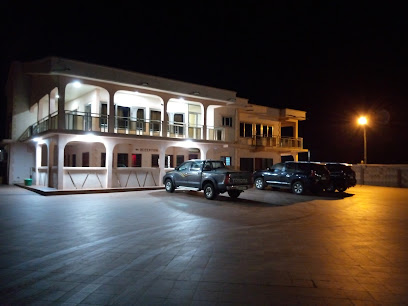
Krachi-Adankpa
97.0 km
Discover the tranquil beauty and rich cultural heritage of Krachi-Adankpa, a hidden gem in Ghana perfect for an immersive travel experience.

Jeyads Lodge
97.3 km
Experience the heart of Northern Ghana at Jeyads Lodge, where comfort meets culture in the vibrant city of Tamale.
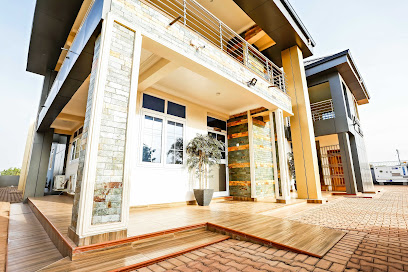
Unmissable attractions to see
Salaga Community Astro-Turf Park
0.3 km
Discover the lively Salaga Community Astro-Turf Park, a perfect blend of sports, relaxation, and local culture in the heart of Salaga.
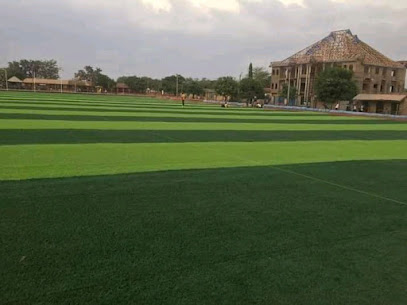
Salaga Slave bath
1.1 km
Explore the Salaga Slave Bath, a poignant historical site in Ghana, reflecting on the impacts of the transatlantic slave trade and its enduring legacy.
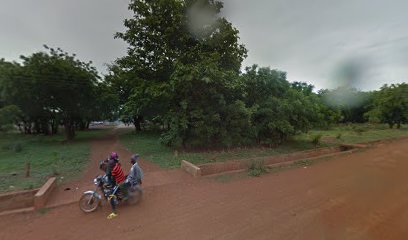
Bossu Hunter house
72.6 km
Explore the breathtaking hiking trails at Bossu Hunter House in Bimbila, where nature and culture unite for an unforgettable adventure.

Boti falls
86.9 km
Experience the breathtaking beauty of Boti Falls, a stunning natural wonder in Ghana, perfect for relaxation and adventure amidst lush landscapes.

Akyem Swedru Meeting Park
86.9 km
Discover the tranquil charm of Akyem Swedru Meeting Park, a community haven in Ghana perfect for relaxation, picnics, and cultural experiences.

Ганаа байв
86.9 km
Experience the lush beauty and tranquility of Ganaa Bayiv, Trohwe's enchanting garden paradise, perfect for relaxation and nature exploration.

Paradise beach Tema
86.9 km
Explore the beauty of Paradise Beach in Tema, a serene escape with golden sands, crystal-clear waters, and rich Ghanaian culture.

Kikam
86.9 km
Experience the breathtaking beauty and rich culture of Kikam, a hidden gem in Trohwe, Ghana, perfect for nature lovers and cultural enthusiasts alike.

Mount Afadjato
86.9 km
Discover the breathtaking beauty and adventure at Mount Afadjato, Ghana's highest peak, where nature and culture harmoniously blend.

Shai Hills Resource Reserve
91.1 km
Explore the breathtaking landscapes and rich biodiversity of Shai Hills Resource Reserve, a true gem in Ghana for nature lovers and adventure seekers.
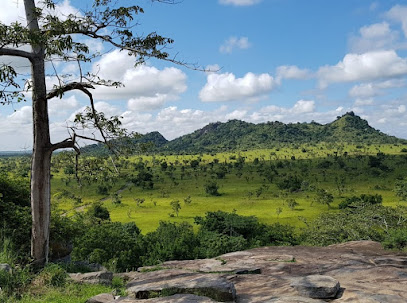
Lapas Park
94.1 km
Explore Lapas Park in Dambai, a tranquil green haven perfect for relaxation, picnics, and immersing in the local culture amidst nature's beauty.
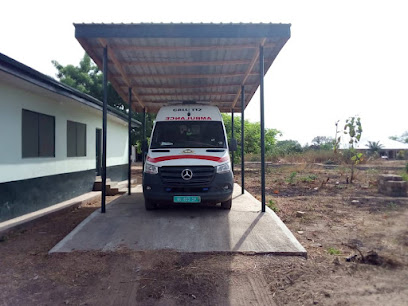
Dream Village Biohub
94.6 km
Experience the essence of Ghana at Dream Village Biohub, where culinary delights, education, and community come together in Dambai.
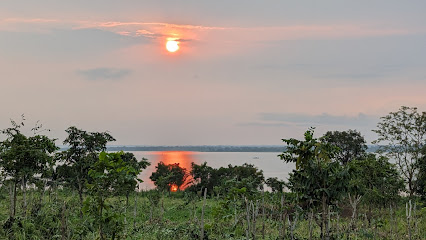
Kete Krachi Market
98.9 km
Experience the vibrant energy of Kete Krachi Market, a cultural gem in Ghana filled with local crafts, fresh produce, and authentic Ghanaian hospitality.

Horticulture Plant House
99.9 km
Explore the Horticulture Plant House in Tamale, a tranquil park showcasing diverse plant species and offering a serene escape into nature.

Essential places to dine
Savanna city cuisine ( restaurant)
1.6 km
Experience authentic Ghanaian flavors at Savanna City Cuisine in Salaga - a culinary gem showcasing local ingredients and traditional dishes.
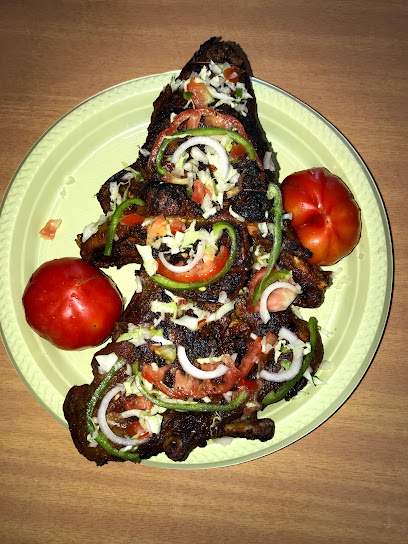
BOWMARIE RESORT
56.7 km
Discover Bowmarie Resort: A culinary haven offering exquisite dining and comfortable accommodations amidst Kpandai's stunning landscapes.
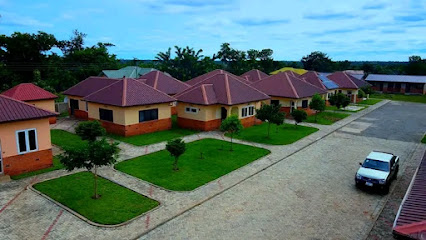
Miracles rest stop, Kyinderi
60.7 km
Experience authentic Ghanaian flavors at Miracles Rest Stop in Kyinderi - your perfect travel companion.
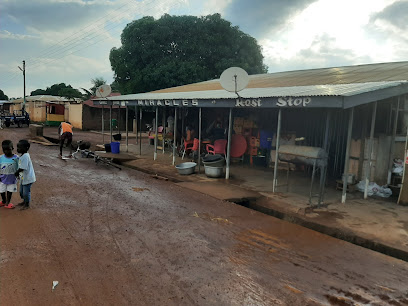
WALJI RESTAURANT
71.4 km
Experience authentic Ghanaian cuisine at Walji Restaurant—where every meal tells a story of flavor and culture.
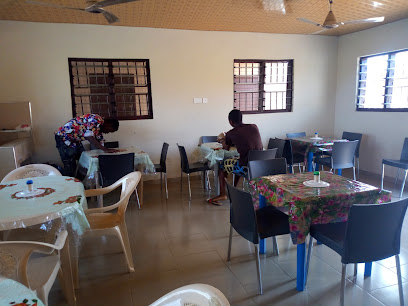
Agya farms
86.8 km
Discover Agya Farms in Trohwe - A delightful breakfast spot serving authentic Ghanaian cuisine with fresh ingredients.
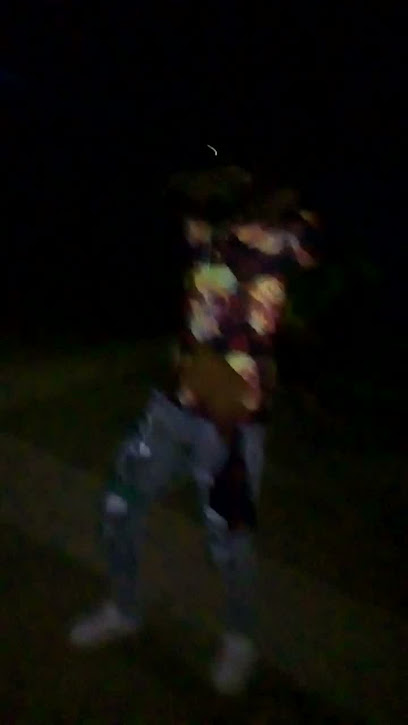
John does it(CHOPSTICKS RESTAURANT 🥢)
86.9 km
Experience authentic Chinese flavors at John Does It (Chopsticks Restaurant) in Ghana - a true culinary delight!

morocco food ghana
86.9 km
Savor the essence of Ghana at Morocco Food - where fresh seafood meets traditional donburi delights in Trohwe.

Mouhamed Bouboucar arzeka maïga
86.9 km
Experience authentic Ghanaian cuisine at Mouhamed Bouboucar Arzeka Maïga in Trohwe - a culinary journey filled with vibrant flavors and local charm.

There Are Too Many People In The World
86.9 km
Discover authentic Ghanaian cuisine at Trohwe's unique restaurant offering warm hospitality and flavorful dishes that celebrate local culture.

Yajobea catering services
87.2 km
Experience authentic Ghanaian cuisine at Yajobea Catering Services in Trohwe - where every dish tells a story.

Couple's Magic
92.0 km
Discover the enchanting flavors at Couple's Magic in Accra – where romance meets culinary excellence.
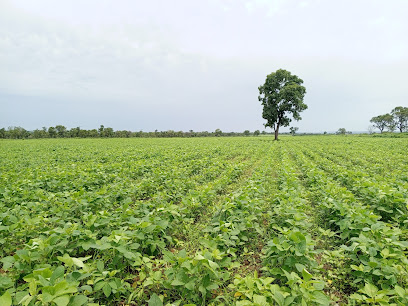
Royal Chop Bar and Pub
93.6 km
Experience authentic Ghanaian flavors at Royal Chop Bar and Pub in Dambai—where culinary tradition meets vibrant atmosphere.

Large Tree Shop24
95.7 km
Experience authentic Ghanaian cuisine at Large Tree Shop24 in Tamale, where flavor meets warmth and hospitality.
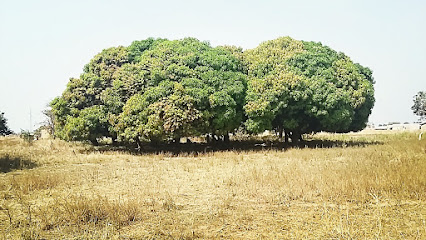
R. Hide-Out Lounge
96.9 km
Experience authentic Ghanaian flavors at R. Hide-Out Lounge in Tamale - a must-visit culinary destination for every traveler.
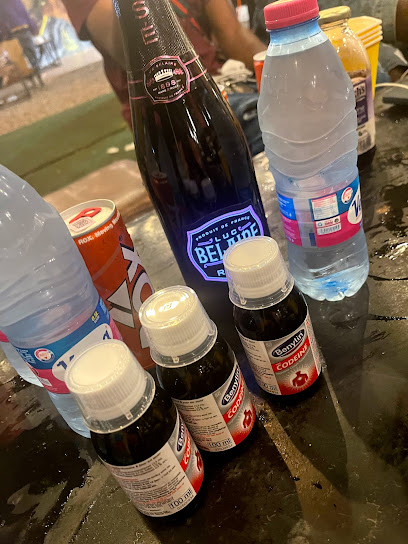
Likers Restaurant
97.0 km
Experience authentic Ghanaian flavors at Likers Restaurant in Tamale – where tradition meets taste.
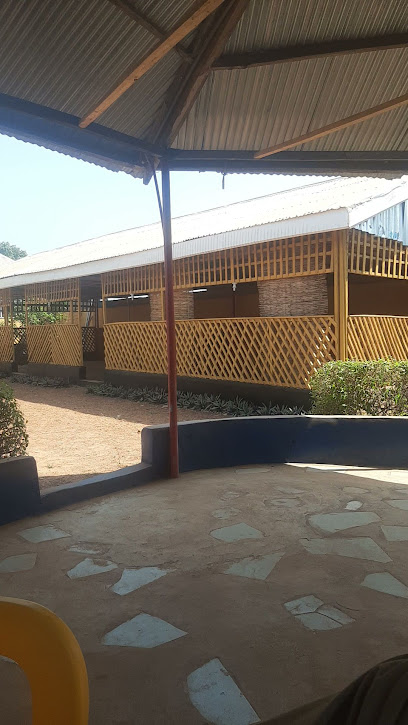
Markets, malls and hidden boutiques
Azigi's Collection
38.2 km
Discover the eclectic beauty of Ghanaian craftsmanship at Azigi's Collection, Yeji's premier fashion accessories store for unique souvenirs.
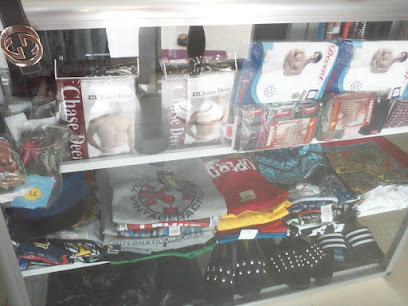
AKOS ENT.
45.0 km
Experience the vibrant shopping and rich local culture at Akos Ent. Shopping Mall in Gulbi, a must-visit destination for every tourist.
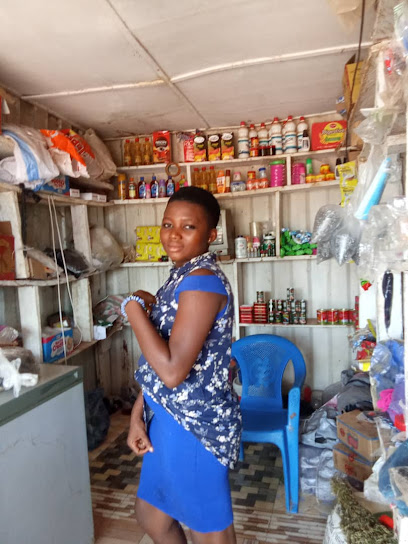
Kpandai
56.4 km
Explore Kpandai, Ghana: A vibrant electronics hub intertwined with rich cultural experiences and local charm.
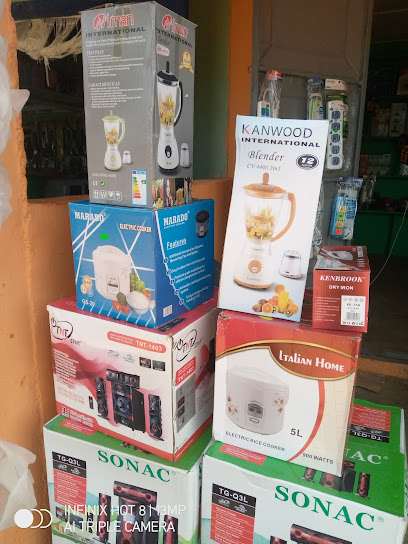
VictoriaTichey Kente/Smoke Shop
56.6 km
Discover the vibrant world of Ghanaian fashion at VictoriaTichey Kente/Smoke Shop, where tradition meets style in Katiajeli.

Kpandai Market
56.7 km
Explore the vibrant Kpandai Market, a hub of local culture and commerce in Ghana, offering fresh produce, crafts, and unique souvenirs.
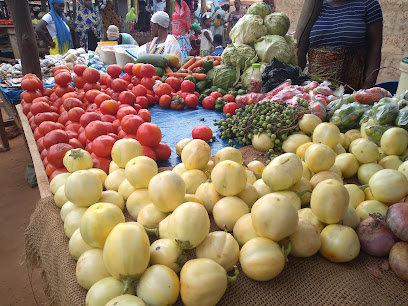
THY GRACE ENTERPRISE
56.8 km
Explore Thy Grace Enterprise in Katiajeli for an authentic experience of Ghana’s building materials market, blending commerce with local culture.

AFriNET COMPUTER SERVICES & STATIONERY
60.3 km
Discover quality printing services at AFriNET Computer Services & Stationery in Kyinderi, perfect for tourists needing documents or souvenirs.
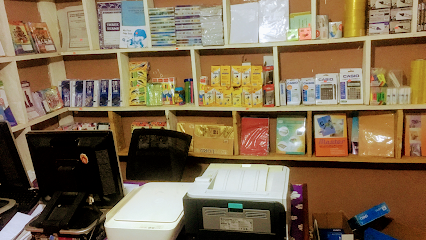
Rocky phones and accessories
60.6 km
Discover Rocky Phones and Accessories in Grubi/Bejamse street for top-notch grooming and the latest mobile gadgets in one place.
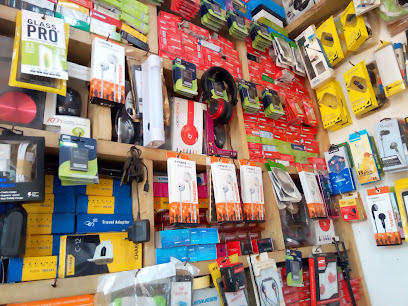
Eyrams Boutique
60.6 km
Discover unique fashion and local culture at Eyrams Boutique in Kyinderi, where style meets tradition in every piece.

Jesus Alone
60.7 km
Discover authentic Ghanaian goods and warm hospitality at Jesus Alone Store in Kyinderi, a must-visit for every traveler.
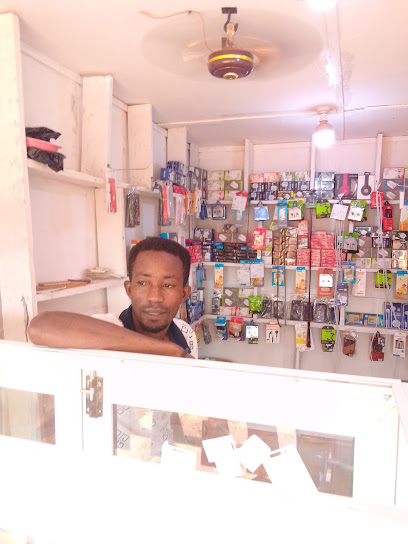
Kings&Queens Collection
60.8 km
Explore the vibrant Kings&Queens Collection in Kyinderi for unique clothing and a taste of local fashion culture.

Market
60.9 km
Discover the vibrant Market in Kyinderi, where local craftsmanship meets a lively atmosphere, perfect for an authentic Ghanaian experience.
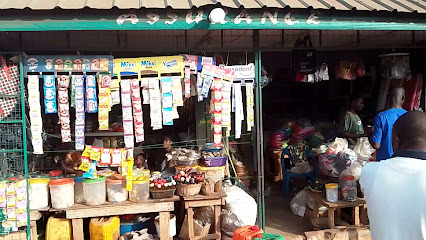
Anyinamae Market
67.9 km
Immerse yourself in the vibrant culture of Ghana at Anyinamae Market, where fresh produce, local crafts, and delicious street food await.

AWURADENE NE ME HWEFO STORE
68.9 km
Experience the essence of Ghanaian culture at Awuradene Ne Me Hwefo Store, where local goods meet community spirit in Borae.

Yesu Adom Enterprise
79.4 km
Experience the local charm and diverse offerings of Yesu Adom Enterprise, your go-to general store in Hiamankyen.
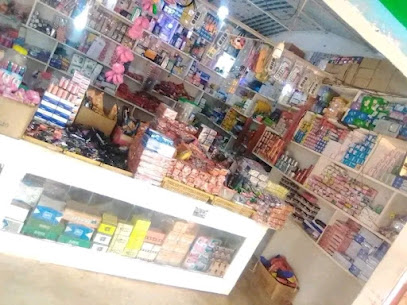
Essential bars & hidden hideouts
Pub 4
0.8 km
Discover the lively nightlife of Salaga at Pub 4, a vibrant bar offering a variety of drinks and a welcoming atmosphere for tourists and locals alike.
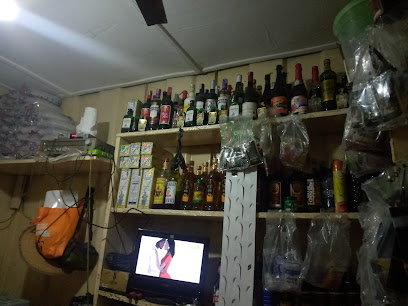
Adom Fast Food
40.2 km
Discover the heart of Ghanaian cuisine at Adom Fast Food in Yeji – a lively bar offering authentic flavors and a welcoming atmosphere.

Alaska Spot
54.9 km
Discover the lively atmosphere of Alaska Spot in Buya, where local culture and vibrant nightlife come together for an unforgettable experience.
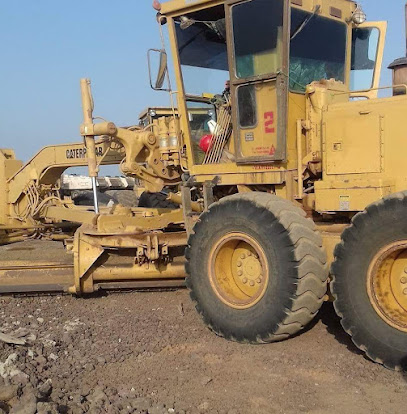
Sista abbi Special
55.0 km
Experience the authentic tastes of Ghana at Sista abbi Special, a culinary delight in Burai, perfect for tourists seeking local flavors.

Happy day bar
55.0 km
Experience the vibrant nightlife and friendly atmosphere at Happy Day Bar in Banda, where refreshing drinks and local music await.

Kwasi Drinking Bar . Okpanjani
56.2 km
Experience the vibrant nightlife and authentic local flavors at Kwasi Drinking Bar in Tale, the perfect spot for relaxation and socializing.

Yaw Ali Arena Pub
56.8 km
Discover the lively Yaw Ali Arena Pub in Kpandai, where local culture meets a vibrant nightlife experience, perfect for tourists seeking authentic Ghanaian flavors.
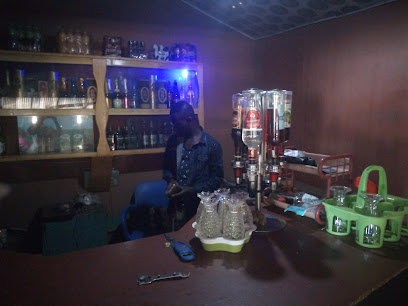
Adiza Food Joint
60.6 km
Discover authentic Ghanaian flavors at Adiza Food Joint in Kyinderi, where traditional dishes meet a warm and inviting atmosphere.
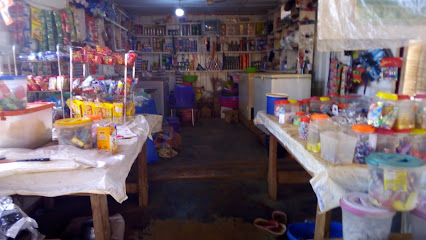
I Beg God Enterprise
60.7 km
Discover I Beg God Enterprise: A vibrant bar in Kyinderi, serving local drinks and an unforgettable atmosphere.
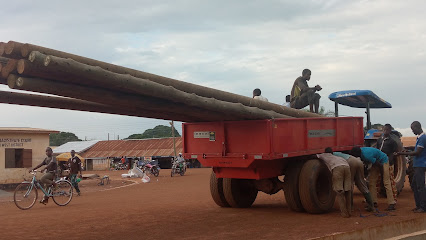
Korkorlikor's Barbering shop
60.7 km
Experience traditional barbering in Kyinderi at Korkorlikor's Barbering Shop, where grooming meets local culture in a warm, inviting atmosphere.

ADOM FOOD AND COLD STORE
68.7 km
Discover authentic Ghanaian cuisine at Adom Food and Cold Store in Borae, where every bite tells a story of local culture and flavor.
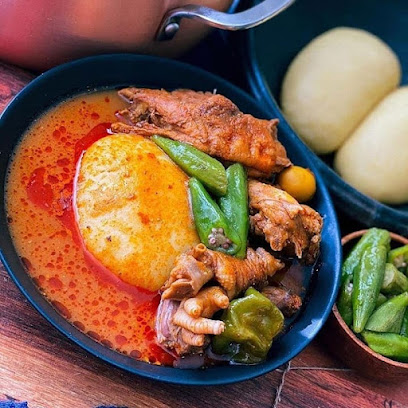
Blondies
86.9 km
Experience authentic Ghanaian cuisine at Blondies in Golf City, where vibrant flavors and a welcoming atmosphere await you.

Elubo
86.9 km
Experience the lively atmosphere of Elubo Bar in Trohwe, where local drinks and culture come together for an unforgettable night out.

Prestea-sankofa
86.9 km
Experience the heart of Ghanaian nightlife at Prestea-Sankofa, a vibrant bar in Trohwe offering local drinks and a welcoming atmosphere.

Kosby Pub
86.9 km
Discover the lively Kosby Pub in Trohwe, a perfect blend of local flavors, vibrant atmosphere, and great company, ideal for a night out.

Nightclubs & after hour spots
Hajiah
72.0 km
Discover the vibrant nightlife at Hajiah in Yendi, where local culture meets entertainment in a lively bar atmosphere.
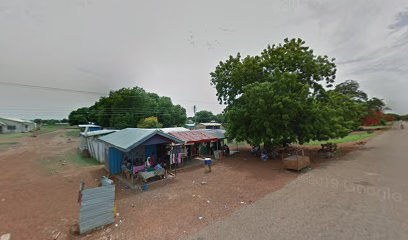
Stylish king Ghana
86.9 km
Discover the vibrant nightlife at Stylish King Ghana, where lively atmosphere and local flavors create unforgettable experiences for every visitor.

Green beach Ghana NGO
86.9 km
Experience the vibrant coastal life at Green Beach Ghana, a local bar where culture, music, and stunning ocean views meet.

Happy Dayz Lounge
98.7 km
Experience the vibrant ambiance of Happy Dayz Lounge, a unique blend of pool bar, nightclub, and restaurant in the heart of Tamale.
